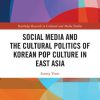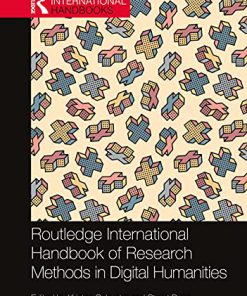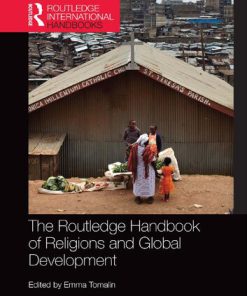The Routledge Handbook of Community Development Research 1st Edition by Lynda Shevellar, Peter Westoby ISBN 1317043863 9781317043867
$50.00 Original price was: $50.00.$25.00Current price is: $25.00.
The Routledge Handbook of Community Development Research 1st Edition by Lynda Shevellar, Peter Westoby – Ebook PDF Instant Download/Delivery: 1317043863, 9781317043867
Full download The Routledge Handbook of Community Development Research 1st Edition after payment
Product details:
ISBN 10: 1317043863
ISBN 13: 9781317043867
Author: Lynda Shevellar, Peter Westoby
The Routledge Handbook of Community Development Research 1st Edition:
This handbook sets a new research agenda in community development. The contributors redefine existing areas within the context of interdisciplinary research, highlight emerging areas for community development related research, and provide researchers and post-graduate students with ideas and encouragement for future research activity. To do this, the editors have deliberately chosen to frame this book not through a traditional sociological lens of class, race and gender, but through a “Wicked Problems” framework.
Drawing upon the work of 37 international authors, in diverse settings such as West Papua, Peru, the USA and Australia; and with methodologies equally as diverse, from case studies and interviews to the use of music and story-telling, this handbook focuses upon five Wicked Problems: forced displacement; family, gender and child related violence; indigenous marginalisation; climate change and food security; and human survival in the context of disaster and recovery work.
By drawing together leading scholars from community development, social work and social policy, this handbook provides an up to the minute snapshot of current scholarship as well as signposting several fruitful avenues for future research. This book is both an invaluable resource for both scholars and practitioners and an indispensable teaching tool for use in the classroom and in the field.
The Routledge Handbook of Community Development Research 1st Edition Table of contents:
1.Wicked Problems and Community Development: An Introductory Essay
- Introduction
- Section One: The Four Settings for this Collection
- Section Two: The Structure of the Book – Crossing the Borderlands
- Note
- References
PART I: Forced Displacement
2. Disruptive Rights-based Community Development in Protracted Urban Refugee Contexts: The Politics of Legal Recognition
- Introduction
- Lives in Limbo: From the Lacuna of Legal Rights to Human Rights in Action
- Methodology
- An Emancipatory Process
- New Deliberative Spaces
- Using Community Training to Challenge Traditional Power Relationships
- Recognition of Agency and Leadership
- Disruptive Practice: Rights Struggles in Exile
- Conclusion
- Notes
- References
3. They’d just “Flown Away”: Reflections on Shifting Gender Norms in the Context of Engagement with Asylum Seekers and Refugees through Community Music
- Introduction: Asylum Seeking in Australia in the Border Protection Era
- Forming the Orchestra
- Our Approach
- Discussion: The Music Goes On
- Conclusion
- Acknowledgements
- Notes
- References
4. Underestimating Legacy: Lessons Learned from Mining-caused Displacement and Resettlement
- Introduction
- Mine-caused Displacement and Resettlement
- Mining in Peru
- Corporate Community Development Intervention
- Research Methods
- Discussion
- Conclusion
- Acknowledgements
- Note
- References
PART II: Family, Gender, and Child-related Violence
5. What Role for Community?: Critical Reflections on State-driven Support for Vulnerable Children and Orphans in South Africa
- Introduction
- The Literature on Community-based Care
- Research Methods
- The Government’s View
- How the CBOs View Themselves
- CBO Services
- Discussion
- Conclusion
- Notes
- References
6. Community-based Strategies to Combat Child Trafficking in Indonesia
- Introduction
- Methodology
- Child Trafficking in Indonesia
- The ENABLE Program
- Good Practice, Success Stories and Lessons Learned
- The R, R and R of ‘Victims of Trafficking’
- Ethical Reflections
- Conclusion
- Notes
- References
7. Preventing Violence Against Women: Researching the Development and Evolution of an Integrated CALD Community Family Violence Project
- Introduction
- Contemporary Understandings and Frameworks in Family Violence Prevention Strategies
- Links and Similarities Between Family Violence Prevention Strategies and Community Development Principles
- A Community Development Approach from the Beginning: The Whittlesea CALD Communities Family Violence Project
- The Role of Research: A Participatory Approach to Learning and Community Work
- Examples of Research Processes and Outcomes: Prevention as a Participation Process
- Discussion
- Notes
- References
PART III: Indigenous Marginalisation
8. Storying Unarmed Insurgencies: Collective Narrative Methods for Researching Civil Resistance
- Introduction
- Context
- Narrative Community Work
- Bearing Witness and Civil Resistance
- A Narrative Technique for Witnessing Strategy
- Storying Dialogue
- Narrating Norms
- A Technique for Researching Utopian Enactment
- Storying Unarmed Insurgencies
- Conclusion
- Acknowledgements
- Notes
- References
9. “Singing on Country and Singing for Country”: Music in Work with Australian Aboriginal Communities
- Introduction
- The “First Story” – Contemporary Aboriginal Australia
- Research, Music and Getting to the Heart of the Aboriginal Story
- The Value of Music to Community
- Accounts from Aboriginal Community Development
- How is it that Music has Become Important in these Projects?
- Conclusion
- Notes
- References
10. Complicating Dynamics: Adapting the Sustainable Livelihoods Framework to a Remote Indigenous Context in Australia
- Introduction
- The Resilience of the Sustainable Livelihoods Framework
- Applying the Sustainable Livelihoods Framework to Remote Australia
- Contextualising Livelihoods Assets
- Contextualising Vulnerabilities
- Participation and Communication
- Ownership and Governance
- Conclusion
- Acknowledgements
- Notes
- References
11. The Martu Leadership Program: Community-led Development and Experimentalism
- Introduction
- The Conventional Policy Approach
- Experimentalism
- Some Notes on Methodology
- Part One: Martu and their Context
- Part Two: The MLP
- Part Three: The Second Phase of the MLP 2017–2020
- Discussion
- Conclusion
- Notes
- References
12. Enhancing Aboriginal Child Welfare through Multisector Community Collaboration
- Introduction
- Child Welfare and Community Development
- Aboriginal Child Welfare in Canada
- A Case Study in the Promotion of Social Change
- Research Findings
- Discussion
- Conclusion
- Notes
- References
PART IV: Food and Climate
13. Stories of Climate-induced Mobility: Responses, Challenges and the Need for an Institutional Framework to Guide these Transitions
- Introduction: The Context of Climate-induced Mobility
- Case Studies
- Case Study Methods
- Findings
- Concluding Remarks
- Note
- References
14. Food Sovereignty and Community Economies: Researching a Spanish Case Study
- Introduction
- Food Sovereignty and the Politics of Food
- Research and the Politics of Possibility
- Applying the Ethical Coordinates
- Conclusion
- Acknowledgements
- Notes
- References
15. Carving Out Space for Community Gardens in Australia: Exploring the Potential of Community Gardens as Social Movements for Urban Change in Sydney and Canberra
- Introduction: Urban Food Issues in Australia
- Urbanisation and Food Challenges
- Growing Recognition of the Importance of Socially Just Cities
- Methodology: Community Garden Case Studies in Australia
- Australia Case Study Findings
- Comparison with Planning for Urban Agriculture in North American Cities
- Discussion and Conclusions: A Place for Community Development?
- References
PART V: Survival Development
16. The Place of Schools in Building Community Cohesion and Resilience: Lessons from a Disaster Context
- Introduction
- Context
- Methodology
- Conceptual Framework
- Findings: Three Case Studies of School Community Research in a Disaster Context
- Methodological Discussion: Lessons Learned When Researching Communities in Disaster Contexts
- Theoretical Discussion: The Place of Schools in Building Community Cohesion and Resilience
- Conclusion
- Acknowledgements
- References
17. From “Dilemmatic Space” Towards Ecological Practice: Community Development in Disaster Recovery in Queensland, Australia
- Introduction
- Background
- Community as a Site of Policy Intervention
- Community Practice as Dilemmatic Space
- Methodology and Methods
- Findings
- Discussion: Dealing with Dilemmas – Moving Towards Organic Practice
- Conclusion
- Acknowledgements
- Notes
- References
18. Hurricanes, Oil and Rising Water: The Role and Work of Community Development in Coastal Louisiana in the Intersection of Disasters, Recovery and Planning for the Future
- Introduction
- Methods
- History of BISCO
- Context of Southeast Louisiana
- The Work of BISCO
- Disaster-related Organising
- Roles of BISCO
- Intersections and Expectations
- Disaster-organising for Identity and Place
- Tensions of Roles in Partnerships, Organising, and Community Work
- Conclusion
- Acknowledgements
- Notes
- References
Conclusion
19. What Have We Learned?: A Concluding Essay on Wicked Problems, Research and the Contributions of Community Development
- Introduction
- What Have We Learned about Community Development’s Response to Wicked Problems?
- What Have We Learned about Community Development Research (and Methodologies)?
- In Conclusion
People also search for The Routledge Handbook of Community Development Research 1st Edition:
handbook of developmental research methods
research handbook on community development
community development handbook pdf
an introduction to community development 2nd edition pdf
community handbook
Tags:
Lynda Shevellar,Peter Westoby,Routledge Handbook,Community,Development,Research
You may also like…
Computers - Computer Science
Religion & Spirituality - Religious Studies
The Routledge Handbook of Religions and Global Development 1st Edition Emma Tomalin Ed
Housekeeping & Leisure - Handicraft: Cutting and Sewing
Reference - Writing
The Routledge International Handbook of Research on Writing 2nd Edition Rosalind Horowitz
Politics & Philosophy - Anthropology
Routledge Handbook of Development Ethics 1st Edition Jay Drydyk (Editor)
Religion & Spirituality - Religious Studies
Politics & Philosophy
Qualitative Research Methods for Community Development 2nd Edition Robert Mark Silverman
Arts - History & Criticism












